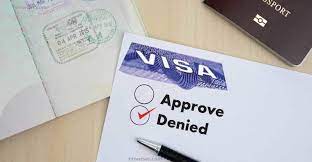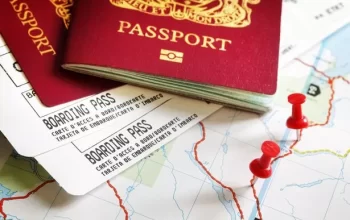Are you a Canadian dreaming of exploring the vibrant culture and breathtaking landscapes of India? Well, we’ve got fantastic news for you! In this blog post, we’re here to answer all your burning questions about Indian visas. Whether you’re curious about the application process, visa types, or any other concerns that might be holding back your travel plans, join us as we unravel the mysteries surrounding Indian visas for Canadians. Say goodbye to uncertainty and get ready to embark on an unforgettable journey through one of the most enchanting countries on Earth! INDIAN VISA FOR CANADIAN CITIZENS
What are the requirements for a Canadian visa to visit India?
To visit India, a Canadian visa is required. Canadians must have a return or onward ticket and sufficient funds to cover their expenses while in India. Indian visas are issued on a case-by-case basis, and can take up to six weeks to process. Canadians should apply well in advance of their travel date, as processing times can increase during peak tourist seasons.
How to apply for an Indian visa?
If you are a Canadian citizen and you want to visit India, there are several things that you need to do first. You will need to obtain a visa from the Indian embassy or consulate in Canada. The process of obtaining a visa can be complicated, but fortunately, we have compiled some tips below to help make the application process easier for you.
To begin with, you’ll need to gather all of the necessary documentation. This includes your passport photo, visa application form (available on the Indian embassy website), proof of citizenship (a copy of your birth certificate or passport), and any other pertinent documents. INDIAN VISA AIRPORTS FOR ENTRY
You should also ensure that you have enough money available to cover your travel costs and any expenses that may come up while in India. Be aware that Indian visas are issued on a first-come, first-served basis, so it is important to start the visa application process as early as possible.
What are the benefits of a Canadian visa for Indians travelling to Canada?
If you are an Indian citizen and wish to travel to Canada, you may be wondering what the benefits of a Canadian visa are. A Canadian visa is valid for up to six months and allows you to enter and stay in Canada while your application is being processed.
Some of the benefits of having a Canadian visa include:
-Having a Canadian visa will allow you to visit any part of Canada without any restrictions.
-You will not have to apply for a visa again if you plan on travelling to Canada within the six-month period that your visa is valid.
-If you hold a valid Indian passport, having a Canadian visa will give you access to many of the same benefits as a U.S. or European passport, such as being able to travel freely in most countries and enjoying reduced waiting times at international airports.
Travel tips for Canadians travelling to India
If you’re a Canadian travelling to India, there are some important things to keep in mind. Here are some tips on how to make your trip go smoothly:
First and foremost, make sure that you have the correct visa for your visit. There are a number of visas that Canadians can use when travelling to India, including tourist visas, business visas, student visas and dependent visa status visas. To find out which visa is right for you, consult the Indian embassy or consulate in Canada before traveling.
Another thing to keep in mind is the religious customs of India. Many people in India follow a Hindu religion, which involves worshipping many gods and goddesses. Some parts of India are more religious than others, so be aware if you’re planning on visiting any religious sites. If you’re unsure about what to do or say when visiting such sites, speak with a travel advisor beforehand.
Be careful with your belongings when travelling to India. Theft is rampant in many Indian cities and visitors should always take precautions such as keeping their passports and other important documents safe and locking their bags when not at home.



